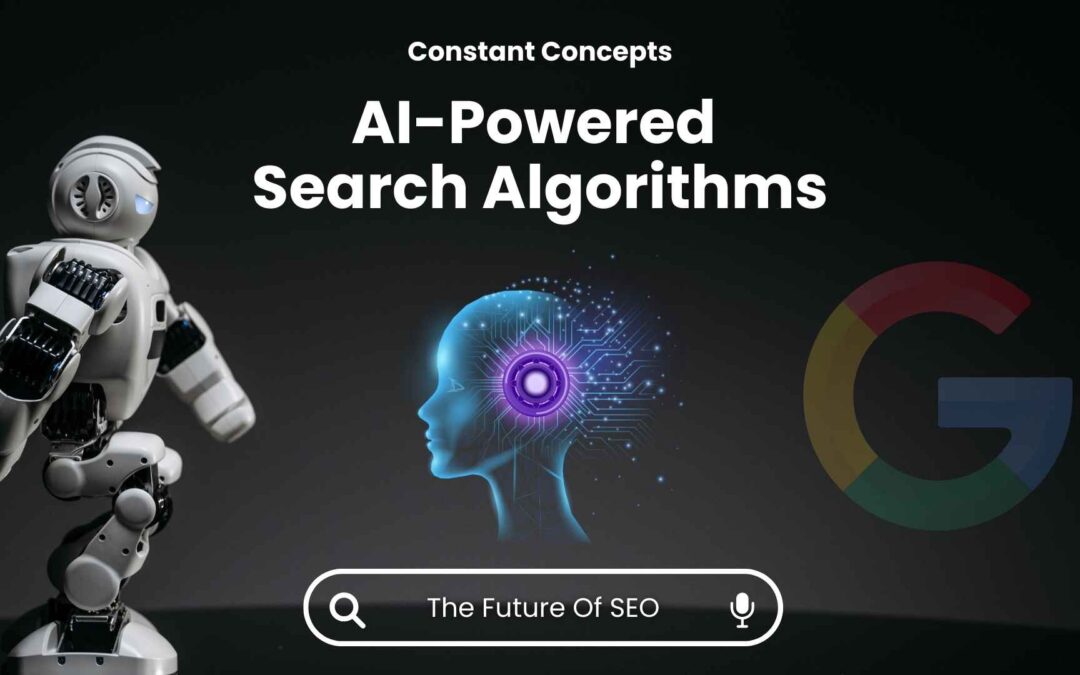Search Engine Optimization (SEO) is at the cusp of a transformation. The driving force? Artificial Intelligence. As Google, Bing, and emerging search platforms embrace increasingly intelligent algorithms, businesses, marketers, and content creators must evolve their SEO strategies to stay ahead.
In this blog post, we’ll explore what AI-powered search means for the future of SEO, what changes you can expect, and how to adapt to maintain and grow your online visibility strategically.
What Is AI-Powered Search?
AI-powered search refers to the integration of artificial intelligence and machine learning into search engine algorithms. Unlike traditional rule-based search systems, AI-enhanced algorithms understand user intent, context, semantics, and preferences, resulting in more personalized and relevant results.
Some core technologies driving AI in search include:
- Natural Language Processing (NLP) – Helps search engines understand queries conversationally.
- Machine Learning (ML) – Continuously improves search results by learning from user interactions.
- Large Language Models (LLMs) – Such as Google’s MUM (Multitask Unified Model) and OpenAI’s GPT, which comprehend and generate human-like language at scale.
- Generative AI Search – Tools like Google’s Search Generative Experience (SGE) aim to provide summarized, contextualized answers instead of listing web pages.
How AI Is Already Changing SEO
AI isn’t on the horizon—it’s already shaping the way we optimize for search:
1. Keyword Strategy Is Evolving
In the past, keyword matching was king. Today, AI understands synonyms, intent, and context. This means your SEO content must focus less on exact-match keywords and more on topical relevance and user intent.
For instance, instead of stuffing “best running shoes” throughout a blog post, a better strategy might include addressing related user concerns like “running shoes for flat feet” or “durability for trail runners.”
2. Search Is Becoming Conversational
Thanks to voice search and AI chat interfaces, users are interacting with search engines in a more natural, conversational way. SEO content must now mirror this style—answering questions in a friendly, human tone and structuring content using Q&A formats, FAQs, and rich snippets.
For example, this in-depth guide on voice search optimization explains how conversational queries are now integral to SEO success.
3. SERP Features Are Replacing Traditional Rankings
With AI-generated answers and zero-click search results rising, traditional organic listings are losing visibility. Features like:
- Featured Snippets
- People Also Ask (PAA)
- Knowledge Panels
- AI snapshots (in Google SGE)
are taking center stage. SEO strategies now need to target these features explicitly, using structured data, concise answers, and schema markup.
4. Content Quality & EEAT Matter More Than Ever
Google’s AI systems like RankBrain and BERT prioritize Experience, Expertise, Authoritativeness, and Trustworthiness (EEAT). Thin, generic content written solely for rankings won’t survive.
Instead, Google rewards well-researched, authoritative content that’s written by people with proven knowledge and real-world experience.
Preparing Your SEO Strategy for the AI Future
Adapting to AI-powered search means rethinking some foundational SEO tactics. Here’s how to future-proof your approach:
1. Focus on Semantic and Topical SEO
Topical authority is becoming more critical than keyword density. Create comprehensive content clusters that cover a subject from multiple angles. Use semantic SEO tools like:
- SurferSEO – for content structure optimization
- Frase.io – for AI-powered content briefs
- Clearscope – for semantic keyword recommendations
By covering topics deeply, not just broadly, your site builds relevance in the eyes of AI algorithms.
2. Create Content for Humans and Machines
Structure your content with both audiences in mind:
- Use clear headings (H2, H3) to break down topics.
- Provide direct answers to common questions early in paragraphs.
- Include schema markup (like FAQPage, HowTo, and Article schemas) to help AI understand your content.
- Add summaries and TL;DRs to assist skimmers and AI models summarizing content.
3. Double Down on User Experience
Google’s AI doesn’t just evaluate content—it also considers how users interact with your site:
- Does your site load quickly?
- Is your content mobile-optimized?
- Do users stay on the page or bounce quickly?
Invest in Core Web Vitals, clean design, intuitive navigation, and fast-loading pages. Tools like PageSpeed Insights and Lighthouse can help optimize performance.
4. Integrate Visual and Multimedia SEO
AI understands not just text but also images, videos, and voice. Use:
- Descriptive alt text for images
- Video transcripts
- Voice optimization for audio content
- Web stories or carousel formats to engage visual search users
Platforms like Pinterest and Google Lens are already leveraging AI to enhance visual search capabilities.
5. Leverage AI Tools Ethically
AI content creation tools can help you scale—but use them responsibly. Combine automation with human oversight to ensure originality and value. Google is not against AI-generated content—but it must be useful, accurate, and helpful to users.
Also, cite trustworthy sources, add expert reviews, and avoid misinformation. This study from Semrush explores how AI-written content performs in SEO when used strategically.
What About SGE and ChatGPT-Style Search?
Google’s Search Generative Experience (SGE) and Microsoft Bing’s AI Copilot aim to answer user queries directly with AI-generated summaries.
Implications:
- Your website may not get a click even if it ranks—because the answer is displayed on the SERP.
- Only high-authority sources are referenced in AI snapshots.
- Google’s SGE emphasizes source transparency, so well-structured and cited content has a better chance of being referenced.
How to Adapt:
- Ensure your brand is visible across multiple trusted platforms.
- Build backlinks from credible, niche-relevant sites.
- Use clear headings and citations to increase your chances of being sourced by AI overviews.
SEO Beyond Google: Be Present Where AI Pulls Data
As search diversifies, your SEO should extend beyond traditional search engines:
- Optimize for platforms like YouTube, TikTok, LinkedIn, and Reddit—which AI models often pull from.
- Focus on entity SEO—making your brand, author names, and key topics recognizable as entities in knowledge graphs.
- Maintain a presence in forums and Q&A sites like Quora and Stack Overflow.
This diversification ensures your content gets discovered even if the search journey doesn’t start on Google.
Future Trends to Watch
Looking ahead, several trends will shape the next generation of SEO:
- Personalized Search – AI will tailor results based on individual behavior, preferences, and history.
- Multimodal Search – Integration of text, image, video, and voice into a single search experience.
- Predictive Search – Suggesting queries or content before users even search.
- Ethical AI Guidelines – Transparency, bias detection, and responsible AI use will affect rankings.
Marketers must stay agile, test frequently, and rely on first-party data and authentic content to maintain visibility in this evolving ecosystem.
Final Thoughts
The future of SEO is not about gaming algorithms—it’s about understanding them. AI-powered search is forcing marketers to create better, more useful, and more human content. That’s a good thing.
By focusing on quality, relevance, and user experience, and embracing AI-enhanced tools responsibly, you can thrive in this new SEO era.
Need Help Navigating the Future of SEO?
At Constant Concepts, we help businesses build sustainable, forward-thinking SEO strategies designed for both today’s and tomorrow’s algorithms. Whether you’re optimizing a startup blog or scaling an enterprise content operation, we can help.
Book a free SEO strategy session and get ready to dominate AI-powered search!








